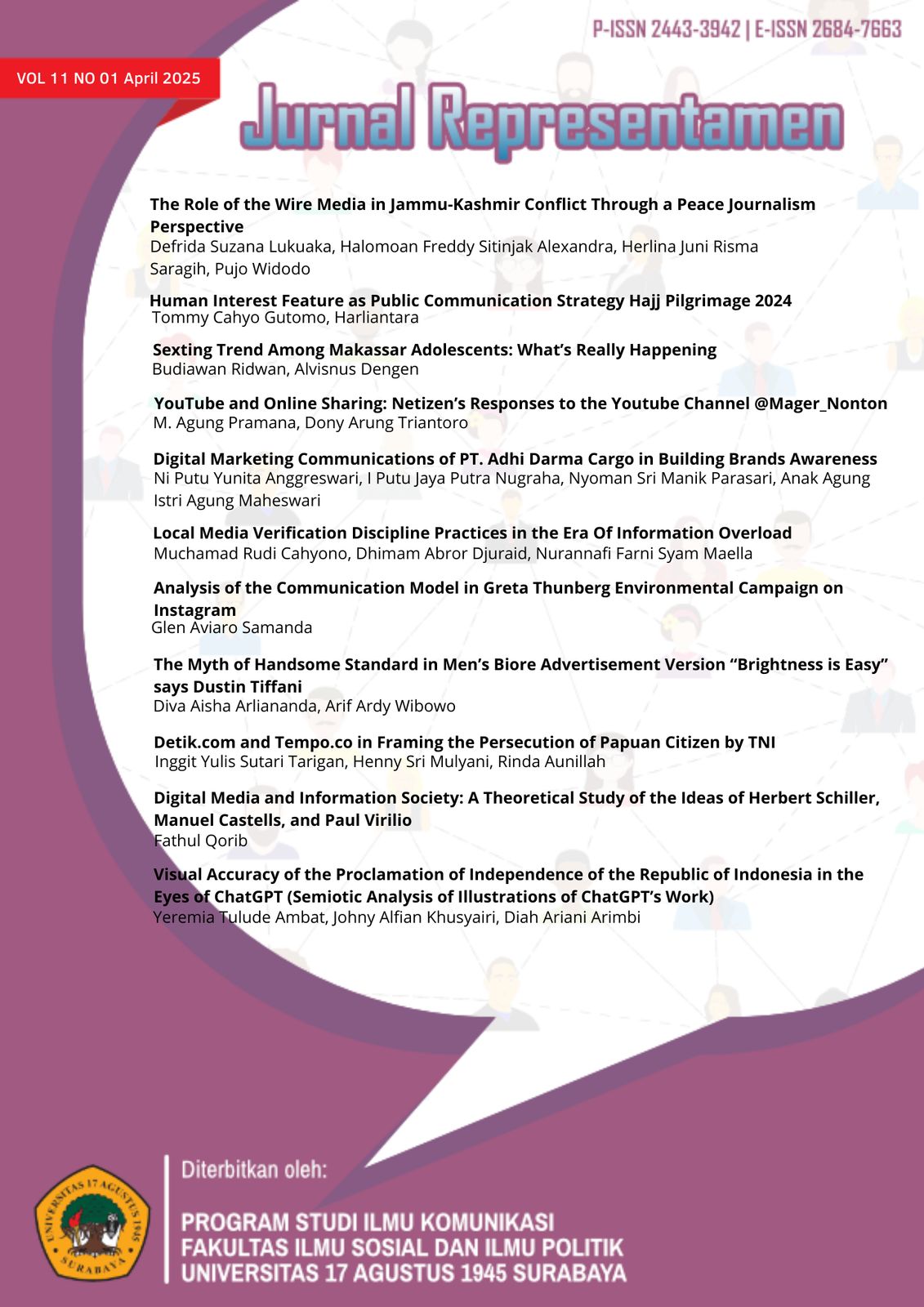Digital Media and Information Society
A Theoretical Study of the Ideas of Herbert Schiller, Manuel Castells, and Paul Virilio
DOI:
https://doi.org/10.30996/representamen.v11i01.11840Abstract
The rapid evolution of digital media has significantly transformed social, economic, and political landscapes, providing new forms of communication, empowerment, and control. This theoretical framework integrates the perspectives of Herbert Schiller, Manuel Castells, and Paul Virilio, focusing on three core concepts: power dynamics, technological acceleration, and inequalities in access and participation. Through an extensive literature review, this research critically examines key texts and scholarly debates surrounding the contributions of each theorist, aiming to develop a comprehensive understanding of digital media’s impact on society. The methodology combines rigorous textual analysis with collaborative academic discussions, ensuring a balanced evaluation of each theorist’s ideas while highlighting intersections and divergences. Schiller emphasizes the role of media in reinforcing capitalist interests, Castells highlights the empowering potential of digital networks, and Virilio explores the implications of speed in shaping public perception. By addressing both strengths and critiques, this framework offers a deeper insight into the dual role of digital media as a catalyst for social change and a mechanism of inequality. The findings contribute to ongoing discourse on the role of digital platforms in contemporary society, emphasizing their potential for democratization while also presenting risks of reinforcing existing power imbalances. This theoretical framework lays the foundation for empirical research and interdisciplinary exploration in media studies. Furthermore, it highlights the need for critical engagement with the evolving digital landscape, urging scholars to examine how digital media can both empower and marginalize, offering a nuanced understanding of its complex role in modern life. Keywords: cultural imperialism; digital media; dromology; information society; network societyDownloads
Downloads
Published
Issue
Section
License
Authors whose manuscript is published will approve the following provisions:
The right to publication of all journal material published on the jurnal representamen website is held by the editorial board with the author's knowledge (moral rights remain the property of the author).
The formal legal provisions for access to digital articles of this electronic journal are subject to the terms of the Creative Commons Attribution-ShareAlike (CC BY-SA) license, which means Jurnal Representamen reserves the right to store, modify the format, administer in database, maintain and publish articles without requesting permission from the Author as long as it keeps the Author's name as the owner of Copyright.
Printed and electronic published manuscripts are open access for educational, research and library purposes. In addition to these objectives, the editorial board shall not be liable for violations of copyright law.











